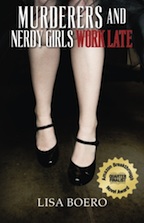I look in the mirror every morning and see a stranger. The stranger is me. I have prosopagnosia, or face blindness, which means that I can’t look at someone’s face and know who they are. I’m not sure when I realized that I was different, but the condition was likely caused by a brain tumor, diagnosed when I was twelve. If you want to ensure that you have a miserable adolescence, have brain surgery and radiation treatment so that you go to school tired, bloated and bald. Add in a healthy heap of bullying and you have a perfect recipe for teenage pain. Needless to say, the trauma associated with all that diverted my attention from the problem I had recognizing people. I thought I was ditzy or stupid or both. It was only later when the scars healed, my hair grew back and I moved to a place where no one knew me, that the difference between what I could do and what I should be able to do became obvious.
So now I had a problem, but I didn’t have a diagnosis. And I didn’t want one, either. While I thank heaven every day for the physicians who successfully treated me, going to the neurologist was not one of my favorite activities. I kept my secret and tried to fake my way through social situations. I learned to focus on individual features rather than the whole face. I memorized noses, foreheads, lips, and eyes. I took careful note of how someone walked or stood. I honed in on details of people’s clothes, hairstyles, shoes, backpacks, and purses. I paid attention to voices. In short, I became a detective of details.
My detective skills work well. So well, in fact, that I haven’t had to share my secret with many people, including doctors. But one special doctor, my husband, gave me a name for what I had, explained why I had it, was impressed with my compensatory abilities, and treated it as no big deal. His support and understanding helped me to come to terms with my insecurities. I realized that I should be proud of what I have been able to do despite the prosopagnosia. I am an everyday detective, and a damn good one at that.
So I decided to write a book about a face blind detective, Liz Howe, who uses her compensatory mechanisms to solve crimes. In Murderers and Nerdy Girls Work Late, Liz becomes an outstanding detective because of her condition, not in spite of it. By the end of the book, she successfully turns her deficits into assets.
I wish I could go back and tell my younger self to skip the years of angst. Buck up, I’d tell her. Being different can be a good thing. I also wish she could have gone to the library and found my book, but who had heard of face blindness back then? For that matter, how many have heard of it now? But it’s not the face blindness that is the problem, I realize. I so feared being considered a freak that I hid my condition and pretended I was like everyone else. It was only when I accepted my deficit, however, that I was able to turn it into an asset. That is the lesson I would like to pass on.






